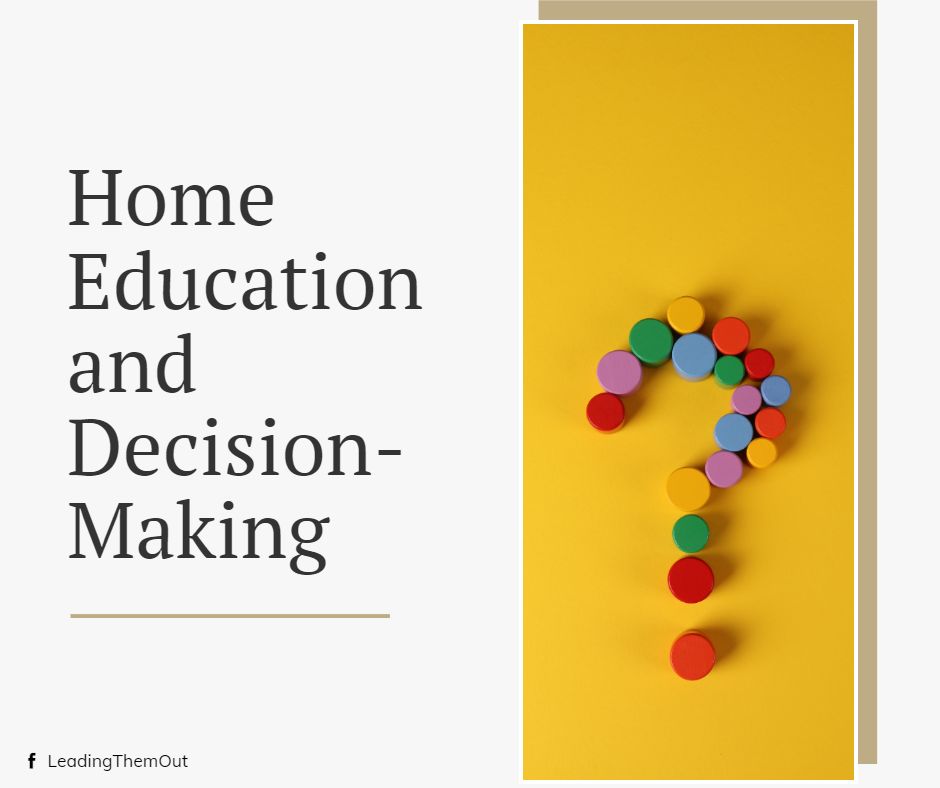One of the more stressful parts of home educating is the ten thousand times ten thousand minor decisions that need to be made over the course of many years as we piece together our home educating journey, home and curriculum. For a mother with a nature like mine, this is a large hurdle. You see, I am one of those people who overthinks minor details. On matters of principle, there is no point even trying to convince me otherwise. I am utterly stubborn, immovable and frustratingly resistant to persuasion. However minor decisions can leave me fretting for days.
How do we navigate some of the decision-making involved in home educating? Well, I think Proverbs offers some wisdom:
Know well the condition of your flocks,
and give attention to your herds (Proverbs 27:23)
How does this piece of advice directed at middle eastern farmers bear on home-educating mothers in the twenty-first century? I wonder whether one of the crucial steps in the world of home education and decision-making is to have a clear view of the resources God has given us to steward.
Know Your Budget
There is nothing unspiritual in working out our budget when we home educate. Whilst money can be the root of all kinds of evil (1 Timothy 6:10), it is also given to us that we may do good with it. One of the ‘good’ things that we can do with our wealth is to give our children a Christian education at home. The reality is that we might only have a few pounds to spend, we might have quite a bit more. Regardless, home education can be done on a shoestring or with a mountain of wealth.
Thinking realistically about our budget helps us to think realistically about which curriculum we might use as well as ‘extras’ such as music lessons, sports clubs, tuition or other social meetups. This is indeed a help to the decision-making parent since if some activities are excluded because of their cost, we do not need to spend time thinking about whether our children should be doing them! There is no point in fretting over what we know we cannot obviously afford.
Know Your Gifting
Every home-educating mother brings something to the table. In fact, many home-educating fathers do as well. Think about this: Jesus was a carpenter because his own father was a carpenter (Matthew 13:55). God puts families together and we can trust him that he can work within the normal means of our own education and interests as we teach our children.
Thinking realistically about our own gifting will likely play a part in what we decide to teach and in how we use our preparation time. For example, I did a Maths A-level. I am rusty on the actual A-level bits, but I can easily handle the maths that my twelve-year-old is working in 2023. This means that all I worry about is supplying books and sharp pencils! I never bother preparing Maths because my time is best used in other activities.
On the other hand, I find science somewhat overwhelming. We need to spend a bit more money on a curriculum that holds my hand. I also need to spend time reading ahead and taking notes in order to do my children and the subject justice. A realistic assessment of my own abilities and weaknesses helps me decide how to steward the hours that God has gifted to me.
Know God’s Hand
I am no artist. If I sketch a cube it looks like a strange animal. I cannot teach my children art because I do not find it very interesting, and I would not know where to begin. But on this point, I know God’s hand. An artist in our local church has offered to help at our home ed group and comes up with amazing ideas for my artistically-inclined daughters to enjoy. As Scripture says, ‘For every beast of the forest is mine, the cattle on a thousand hills.’ (Psalm 50:10). If God wants our children to learn or enjoy something that is perhaps outside of the ordinary means and abilities of the parents, then we can be confident that he will supply.
God works through the ordinary means of our own abilities and resources. He also works through, what we might call, more extraordinary means. He might provide through a generous financial gift, or a loving friend or family member offering to teach our child a skill. We do not need to fret that our children might never reach the ice-skating Olympic final because we parents do not know how to put on a pair of skates. No child has every opportunity, but all children have some opportunities. Rather than panicking over a thousand books that we cannot buy or a thousand skills that we could never teach, let’s look to what the Lord has given us to steward and be faithful to use it for the good of our children and to his glory.

